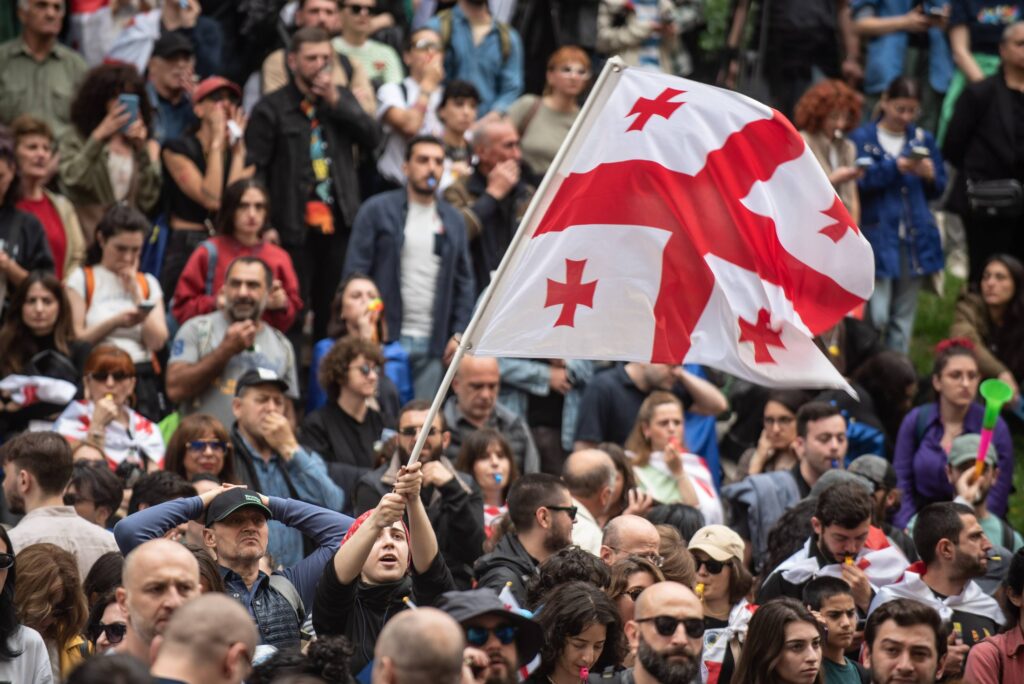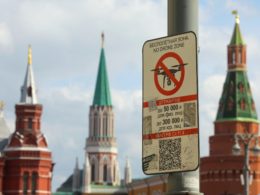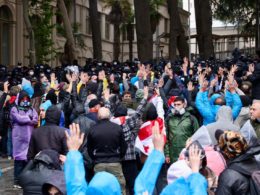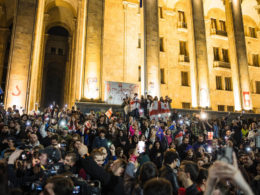The controversial "foreign agents" bill, hotly protested by Georgian civil society, was signed into law by the parliamentary speaker on 3 June.
Mirroring analogous Russian legislation, it will require local NGOs and media outlets that receive more than 20% of their funding from abroad to register as “organizations pursuing the interests of a foreign power" and be subjected to "monitoring" by the Ministry of Justice or pay a fine.
The adoption of the law follows two months of protests, during which government critics and protest leaders faced police brutality and attacks by masked men, as well as criminal cases and hefty fines.
Its adoption was also marked by the proliferation of anti-western rhetoric from the ruling Georgian Dream party and the espousal of a "global war party" conspiracy, against which the government was allegedly protecting Georgia with the means of this law.
The bill was signed by the parliamentary speaker after Georgia's parliament had overturned President Salome Zourabichvili's veto earlier on 28 May. Zourabichvili, whose criticism of the ruling Georgian Dream party included calling them the "Russian Dream," condemned the law as undermining Georgia's Euro-Atlantic integration.
In a speech to protesters in front of the Georgian parliament, Zourabichvili stressed that the task of the opposition is to prepare for the parliamentary elections on 26 October.
"You are angry today, aren’t you? Get upset, but let us get to business," she said, adding that the election would decide if the country had "a European future or Russian slavery."
Preparing for the elections seems to be the strategy of choice of the Georgian opposition, but civil society organizations continue voicing their opposition to the law, which has obliterated Russian civil society since its introduction in 2012.
On 25 April, over 100 NGOs suspended their cooperation with the government over the law and vowed to never register in any “defamatory” registry.
After the parliament overrid the president's veto of the law, Georgian NGOs declared their disobedience in a joint statement called "We will not obey the Russian law." Published on the website of the Georgian chapter of Transparency International, the statement with undisclosed signatories claims that the NGOs will continue their protest and confrontation until the law is repealed.
"The 'Russian law' will not work in our country! It will remain an unrecognized document which none of us will obey!" the statement says.
The signatories vow to protect the rights of those detained and fundraise to pay the bills of those who are fined.
"This is Georgia! We won’t become Russified! The Georgian people will once again and not only once astonish the whole world with their struggle for freedom," the statement vows.
Related:
- Georgia’s Foreign Agents law: Russia’s new frontline in its war against freedom in the world
- “Story of a dying empire”: Georgia’s “foreign agent” law protests echo Ukraine’s Euromaidan
- From Rose Revolution to “Russian Dream”: Georgia at breaking point with pivotal pro-EU protests





